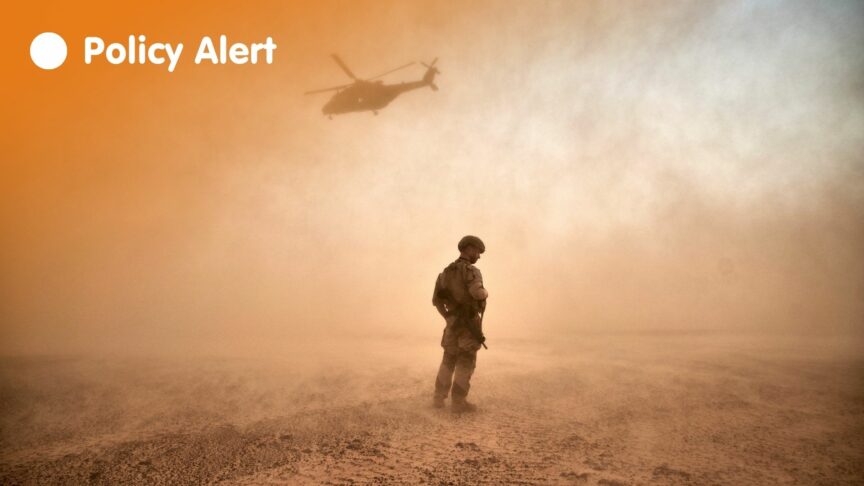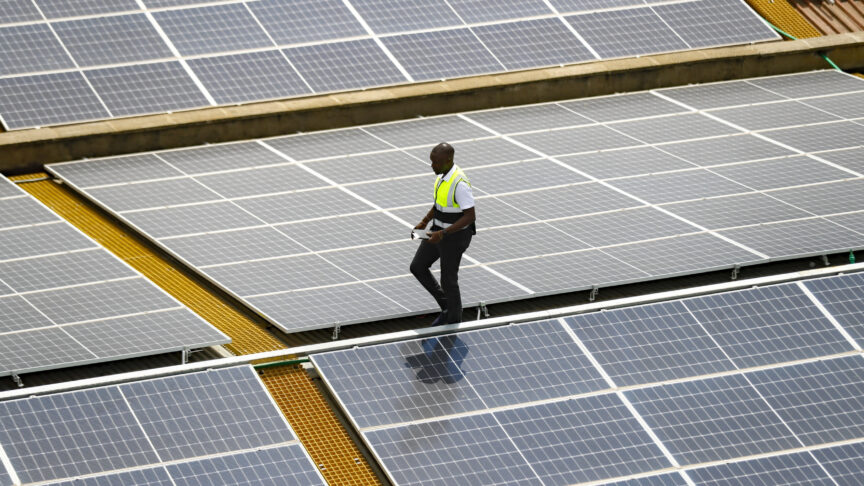Demand swerve: Lavrov in Africa
By making new offers of partnership to African countries, Russia is setting a trap for the West
Russian Foreign Minister Sergei Lavrov claims that his current visit to Africa is not about Ukraine. He maintains that the trip is motivated by Africa’s intrinsic value as a partner for Russia. While that message is attuned to African sensitivities, it fails to mask the primary objective of his visit: political theatre – the image the trip portrays to the world beyond Africa. Despite Western attempts to isolate Russia over its all-out war on Ukraine, Lavrov is using Africa to demonstrate that his country still has partners in some parts of the globe.
The second objective of the trip is to expand Russia’s influence in Africa. Lavrov hopes to achieve this by exploiting the strategic error the West made by asking African countries to choose a side over Ukraine.
This error originated in the West’s push for African countries to vote in favour of a UN General Assembly resolution condemning Russia for the war. Western diplomats tried to convince their African counterparts that the conflict symbolised an attack on not just Ukraine but also the rules-based global order. The West assumed that broadening the war’s consequences to encompass a threat to global order would create common ground with Africa. But African leaders heard something different: the first shot in the new cold war. Choosing a side in that cold war is a much more momentous decision for African countries than condemning Russia’s actions in Ukraine – one for which the West had not done groundwork equal to the scope of the request.
Russian diplomats’ message to Africa is that, while the West wants you to limit your options, we will not ask you to choose a side
The West’s subsequent use of multilateral forums to isolate Russia bolstered African leaders’ view that the cold war was back. Accordingly, with each new Western initiative to punish Russia, African support for the West became more tepid. This is coalescing into a new, if still nascent, African doctrine of non-alignment.
African countries’ top priority is to maximise their options in relationships with foreign powers. One should perceive their non-alignment as an attempt to avoid a global order in which Africa is forced into dependency on one great power bloc. Africa’s objective is to minimise its vulnerability and safeguard its ability to pursue opportunities.
Multiplying global crises such as the pandemic and the climate emergency hit African countries hardest. They are less resilient than the developed world. Unlike countries in the developed world, African nations generally do not have the option of running up national debt or creating stimulus packages to combat crises. Although African countries are striving to increase their self-sufficiency for future crises, they remain deeply reliant on international aid to weather such onslaughts.
In terms of opportunities, economic development is paramount for African leaders. African countries are garnering increasing attention from foreign partners thanks to their abundant natural resources and rapidly growing markets. But, for now, they are generally in a weaker position than their partners – meaning that they struggle to reach mutually beneficial agreements. This is reflected in the fact that African states are often compelled to sell commodities rather than secure foreign investment to manufacture higher-value products with them – and to grant access to their soon-to-be-lucrative consumer markets without receiving technology transfers in exchange.
If African states are to gain the leverage they need to change this dynamic, they will need to maximise the number and quality of their international partnerships. The idea is to have as many friends in times of global crisis as possible – and to encourage competition between their partners to strengthen their economic bargaining position.
Therefore, African leaders fear that the new cold war will force them to limit their international partnerships. They are concerned that the West’s mounting campaign against Russia in multilateral forums will culminate in a demand that they cut all ties with Moscow. More importantly, African leaders worry that this could set a dangerous precedent. Should the international order become even more divided, the West might ask them to do the same thing with China, a move that would be far more damaging.
All this explains why the West’s demand created a strategic opening for Russia. Moscow simply needs to play on African states’ desire to maintain relations with all international partners to achieve two objectives: undermine the West’s attempt to isolate Russia and increase Russian influence in Africa. Essentially, Russian diplomats’ message to Africa is that, while the West wants you to limit your options, we will not ask you to choose a side.
By making new offers of partnership to African countries, Russia is setting a trap for the West. Moscow hopes that Western leaders will pressure their African counterparts to reject these offers. That would backfire and even strengthen Russia’s position in Africa. This is because African states’ position on non-alignment is hardening to the point that any such request to shun international partnership would meet with rejection in principle. And, in a dynamic in which the West’s loss is Russia’s gain, any Western request for alignment now has an air of excluding Russia. African leaders will construe an effort to align with the West on a given issue – even a minor one – as a step toward partisanship in the new cold war. The cynical truth is that Russia has achieved this effect simply by making offers to African countries without needing to fulfil them. The West needs to sidestep this trap by focusing on being the better partner. Rather than compel Africa to limit its options, the West should be Africa’s first, best option.
The European Council on Foreign Relations does not take collective positions. ECFR publications only represent the views of their individual authors.

![DIESES FOTO WIRD VON DER RUSSISCHEN STAATSAGENTUR TASS ZUR VERFÜGUNG GESTELLT. [MOSCOW, RUSSIA – MAY 25, 2022: Russia’s Foreign Minister Sergei Lavrov (L) and Mali’s Ambassador to Russia, Harouna Samake attend a diplomatic reception for heads of African diplomatic missions accredited in Russia, held at the Reception House of the Russian Foreign Ministry to mark Africa Day. Russian Foreign Ministry/TASS]](https://ecfr.eu/wp-content/uploads/2022/07/288547961-scaled-1280x720-c-center.jpg)

